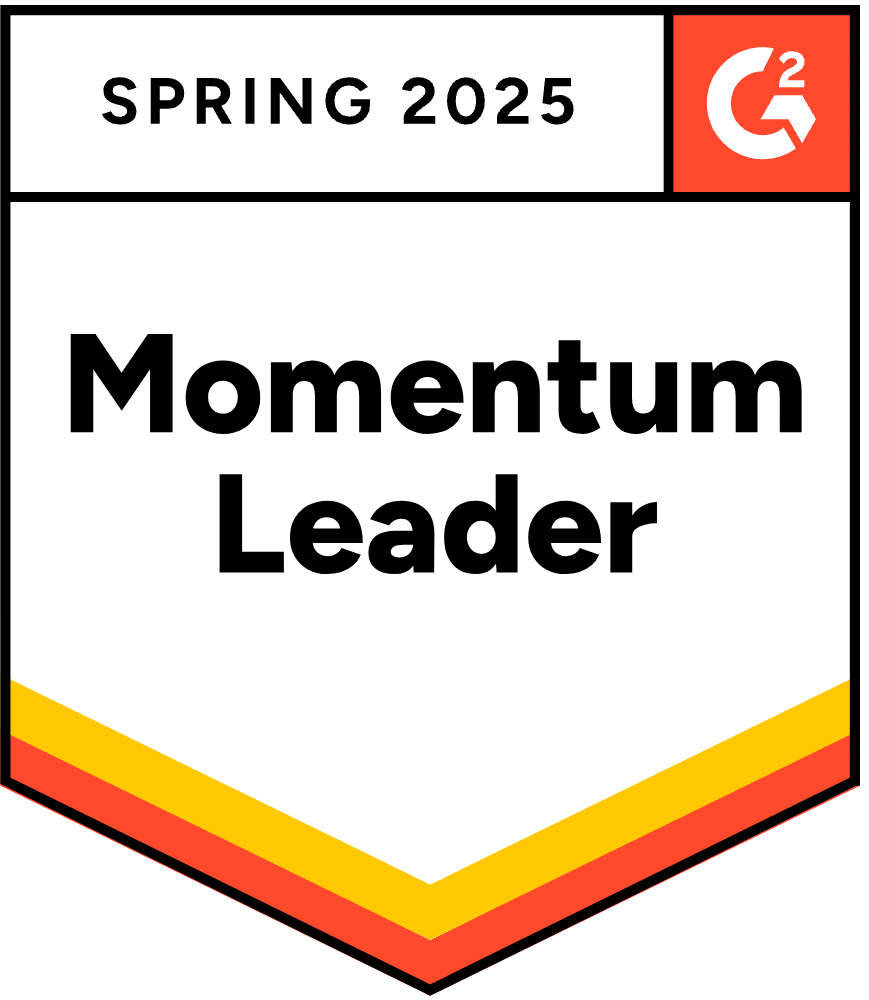Recruitment marketing is a strategic approach to attract and engage potential talent and fulfill organizational hiring needs. It involves the application of marketing for the recruitment process, focusing on creating a strong employer brand, nurturing candidate relationships, and optimizing the candidate experience.
Let’s unravel the mysteries of recruitment marketing, exploring the techniques and strategies that bring talent to your organization’s doorstep.
Content outline:
- What Is Recruitment Marketing?
- Why Is Recruitment Marketing Important?
- Components of Recruitment Marketing
- How to Create a Recruitment Marketing Plan?
- Recruitment Marketing Step-By-Step Guide
- Recruitment Marketing Examples
- Extra Tips for Recruitment Marketing
- Recruitment Marketing Benefits
- Recruitment Marketing Disadvantages
- Conclusion
- FAQs
What Is Recruitment Marketing?
Recruitment marketing promotes an organization as the employer of choice. The goal is to attract and engage talent for current and future job openings. It involves strategic planning, branding, and marketing techniques to create a strong employer brand and efficiently reach potential candidates.
Recruitment marketing employs various channels, such as social media, job boards, career websites, and email campaigns, to showcase an organization’s culture, values, and opportunities to prospective candidates.
Why Is Recruitment Marketing Important?
Recruitment marketing plays a pivotal role in today’s competitive job market. With the rise of digital platforms and increased accessibility of job opportunities, attracting and retaining top talent has become challenging.
For example, imagine you have a new product to offer, like a new game. If you want people to play it, you need to tell them about it and explain why it’s great. Similarly, a company must tell applicants about itself and why it’s a terrific place to work. Here’s why it’s crucial.
Attracting the right talent
Recruitment marketing helps reach out to the right people who would fit the company well. It’s like finding the perfect players for your game.
Building a positive image
Recruitment marketing creates a positive image by showcasing the company’s culture, values, and benefits. Thinking about our game analogy, it’s like presenting the best features of your product to attract players.
Staying competitive
In a world where many companies are looking for good employees, recruitment marketing helps a company stand out and be competitive. It’s important to make sure you are getting noticed among the many others in the recruitment world.
Saving time and resources
By targeting the right audience, recruitment marketing saves time and resources that would have been spent sifting through irrelevant applications, for example.
How Can Recruitment Marketing Help Build an Employer Brand?
Recruitment marketing can help a company build a strong employer brand by showcasing its unique qualities and creating a positive image for potential job applicants.
Imagine a company as an individual. Just like each person has a unique personality, interests, and values, a company has its own distinct culture, values, and work environment that make it special.
Recruitment marketing tells a story about the company. It highlights what makes the organization a great workplace, what it believes in, and how it treats its employees. This storytelling happens through various channels like social media, job websites, emails, and more.
When a company shares this story effectively and consistently, it helps create a clear and appealing image in the minds of job seekers. It’s what makes people say, “That company seems like a fantastic place to work; I’d love to be a part of it!”
Components of Recruitment Marketing
Recruitment marketing has a few main components, or parts, that make it work effectively. Think of these components as the essential pieces of a puzzle that come together to create a clear picture of what the company offers to potential job applicants.
Candidate personas
Understanding the target audience and creating detailed candidate personas helps recruitment marketers tailor marketing efforts to suit their preferences and needs.
Employer branding
This is the company’s personality and reputation as an employer. It involves showcasing the company’s culture, values, and what it’s like to work there. It’s all about creating a positive image to attract the right people.
Job advertising
Like you’d put up signs or online ads to tell people about a cool event, a company advertises its job openings to attract interested candidates. This could be through job portals, social media, or the company’s website.
Spend 25% Less, Get 33% More Great-Fit Candidates
Get your job ads in front of the right people, right place, right time… for the right price, with MOJO Pro – the only transparent programmatic platform.
Learn moreContent marketing
This involves creating and sharing helpful and interesting information about the company and its industry. It could be blog posts, videos, or infographics that provide valuable insight to potential candidates.
Social media engagement
Companies use social media platforms like LinkedIn, Facebook, and X (formerly Twitter) to interact with potential candidates. They share updates about the company, job openings, and employee stories to keep people engaged and interested.
Target Passive Candidates Where They Work and Play – the World Wide Web
Reach 67% of passive candidates and up your conversion rate with MOJO Social.
How it worksEmail campaigns
Email is a direct way to reach out to potential candidates. Companies use emails to share job opportunities, company news, and other relevant information with individuals who have expressed interest.
Employee referral programs
Employees are like the company’s ambassadors. Referral programs encourage employees to suggest suitable candidates for job openings within the company.
Candidate relationship management (CRM)
This is a system that helps keep track of interactions with potential candidates. It lets the company stay organized and maintain good relationships with candidates even if they’re not hired immediately. It’s like keeping a list of people you’ve met and might invite to your next event.
How to Create a Recruitment Marketing Plan
Creating an effective recruitment marketing plan involves a series of strategic steps to attract and engage the right talent for your organization. Here’s a step-by-step guide.
Set clear objectives
Define what you want to achieve with your recruitment marketing plan. This could be attracting a certain number of candidates, filling specific job positions, or enhancing the employer brand.
Understand your target audience
Identify the ideal candidates for your organization. Understand their demographics, preferences, and motivations. Create detailed candidate personas to tailor your marketing efforts effectively.
Develop an employer brand strategy
Define and showcase your organization’s values, work culture, and benefits. Create a consistent and appealing employer brand that aligns with the target audience’s expectations and aspirations.
Select appropriate marketing channels
Choose the right platforms to reach your target candidates based on their preferences. Use social media, job boards, career websites, email campaigns, and other relevant channels to showcase your employer brand and job opportunities.
Craft compelling job advertisements
Develop engaging job descriptions and advertisements that accurately represent the role, company culture, and benefits. Highlight what makes your organization a great place to work.
Utilize content marketing
Create valuable and informative content about your industry and company culture. Share this content through various channels to attract candidates and establish your organization as an industry thought leader.
Implement candidate relationship management (CRM)
Use a CRM system to maintain relationships with potential candidates. Keep them engaged through regular communication, updates, and relevant information, even if they are not actively applying for a job.
Measure and analyze results
Track the performance of your recruitment marketing efforts using key metrics such as the number of applications received, the quality of candidates, and the cost per hire. Analyze the data to make informed decisions and optimize your strategies.
Adjust and optimize the plan
Based on the analysis, make necessary adjustments to your recruitment marketing plan. Optimize your strategies, messages, and channels to improve outcomes and achieve your recruitment goals.
Budget and resource allocation
Decide on a budget for your recruitment marketing activities and allocate resources accordingly. Ensure that you invest wisely in your organization’s most effective channels and strategies.
Recruitment Marketing Step-By-Step Guide
Implementing recruitment marketing involves a systematic approach.
Research and analysis
Before diving into recruitment marketing, conducting thorough research and analysis is essential. This involves studying the job market, identifying industry trends, and understanding the needs and expectations of potential candidates. Utilize market insights to shape your recruitment strategy effectively.
Define target roles and audiences
Clearly define the roles you are recruiting for and pinpoint the target audience for each role. Understanding your ideal candidates’ skills, qualifications, and characteristics will enable you to tailor your messaging and outreach strategies, improving the chances of attracting suitable talent.
Develop a content strategy
Craft a comprehensive content strategy that resonates with your target audience. This includes creating engaging job descriptions, blog posts, videos, and other content that showcases your company culture, values, and opportunities for growth. A compelling content strategy captivates potential candidates and encourages them to join your organization.
Leverage social media and job boards
Utilize the power of social media platforms and specialized job boards to extend your reach to a broader audience. Optimize your job postings for relevant keywords, making it easier for potential candidates to find your job openings. Engage with your audience on social media to enhance brand visibility and create a positive perception of your organization.
Optimize candidate experience
Ensure a seamless and positive experience for candidates throughout the recruitment process. From the initial application to the final interview, focus on communication, feedback, and timely responses. A positive candidate experience attracts top talent and boosts your employer’s brand.
Finding the Best Recruitment Marketing Partner
Finding the right recruitment marketing partner can significantly enhance your recruitment efforts. Look for agencies with a proven track record in:
- Understanding your industry and target audience
- Developing effective recruitment marketing strategies
- Using innovative marketing techniques
- Providing measurable results and continuous optimization
When it comes to top-notch recruitment marketing agencies, one that stands out is Joveo. Joveo is well-known for its innovative and practical approach to seamlessly connecting employers with the perfect talent. You may find more reasons ahead in the article, as to why Joveo could be the best recruitment marketing agency for you.
Recruitment Marketing Examples
Here are some successful recruitment marketing examples to inspire your strategies.
Google’s “Life at Google” campaign
A globally recognized tech giant, Google employed a captivating campaign called “Life at Google.” This campaign offered a peek into Google’s vibrant company culture and work environment. They showcased employee stories, giving potential candidates insight into what it’s like to work there.
By doing this, Google effectively communicated its culture, values, and the exciting daily experiences – what it means to be a part of its team.
Airbnb’s “We Are Airbnb” campaign:
Airbnb, a leading online marketplace for lodging and travel experiences, ran a campaign named “We Are Airbnb.” This campaign was designed to spotlight the core values and the unique sense of community that sets Airbnb apart. It provides a window into the company’s ethos, culture, and the spirit of hospitality it champions.
By showcasing these elements, Airbnb not only attracted potential talent who resonate with these values, but also gave them a sense of what it would be like to contribute to this community – they offered a glimpse into the Airbnb family.
Extra Tips for Recruitment Marketing
Here are some additional tips to enhance your recruitment marketing strategies.
Leverage employee testimonials
Encourage current employees to share their positive experiences working for the company. Authentic testimonials can significantly influence potential candidates and provide genuine insight into the work environment.
Highlight career growth opportunities
Showcase potential career paths and growth opportunities within the company. This could include stories of employees who have progressed within the organization, demonstrating the potential for career development.
Utilize video content
Incorporate videos into your recruitment marketing strategy. Videos are engaging and can effectively convey the company’s culture, values, and job roles. Consider creating virtual office tours, day-in-the-life videos, or interviews with employees.
Optimize for mobile
Ensure your recruitment content is easily accessible and looks good on mobile devices. Many candidates use smartphones for job searches, so having a mobile-friendly website and application process is essential.
Engage with potential candidates
Actively engage with individuals who express interest or interact with your recruitment content. Respond to comments, messages, and inquiries promptly and professionally, fostering a positive candidate experience.
Promote employee benefits and perks
Clearly outline the benefits and perks of working for your company. This could include flexible work hours, health benefits, learning opportunities, or a supportive work environment. Make these aspects a prominent part of your recruitment messaging.
Employ data analytics
Leverage data and analytics to measure the effectiveness of your recruitment marketing efforts. Track metrics such as website traffic, application rates, and conversion rates to optimize your strategies based on real-time insights.
Collaborate with influencers
Partner with industry influencers or employees with a significant social media following. Their endorsement and promotion of your company can reach a wider audience and increase brand credibility.
Customize communication
Tailor your communication to each candidate, highlighting how their skills and aspirations align with the job opportunity and the company’s culture. Personalized messages make candidates feel valued and more inclined to engage.
Maintain a consistent brand image
Ensure your branding, messaging, and imagery remain consistent across all platforms. This builds a strong and recognizable employer brand that resonates with potential candidates.
Recruitment Marketing Benefits
Recruitment marketing offers several key benefits that can significantly enhance an organization’s hiring process.
Enhanced candidate quality
Effective recruitment marketing helps target and attract high-quality candidates who align with the organization’s culture, values, and job requirements. This results in a pool of candidates who are more likely to succeed and thrive in the company.
Cost effectiveness
By utilizing digital platforms and targeted strategies, recruitment marketing can be more cost effective than traditional hiring methods. It allows organizations to reach a larger audience without hefty expenses, making it an efficient option for talent acquisition.
Improved employer branding
A strong employer brand is crucial for attracting top talent. Recruitment marketing helps shape a positive employer brand by showcasing the company’s values, culture, and opportunities. A favorable brand image attracts more candidates and improves retention rates.
Better time-to-hire
Recruitment marketing streamlines the hiring process by attracting genuinely interested and well-informed candidates to the company. This speeds up the hiring cycle, ensuring critical positions are filled on time.
Wider candidate reach
Through various digital channels and marketing techniques, recruitment marketing enables organizations to reach a broader and more diverse pool of candidates. This increases the likelihood of finding the best-fit candidate for each job.
Engagement and interaction
Interactive recruitment marketing campaigns encourage candidate engagement. Platforms like social media allow for direct interactions, answering candidate queries, and providing real-time updates, all of which create a positive candidate experience.
Data-driven decision making
Recruitment marketing utilizes analytics and data-tracking tools to measure the effectiveness of strategies. Insight gathered from these data points help make informed decisions, refine recruitment efforts, and optimize future campaigns.
Talent pipeline
Through continuous engagement and relationship-building with potential candidates, recruitment marketing creates a talent pipeline. This pipeline ensures a steady flow of interested and qualified candidates for current and future job openings.
Adaptability and agility
Digital recruitment marketing allows quick adjustments and adaptability, despite changing market conditions or organizational needs. It enables organizations to pivot their strategies swiftly to target specific talent or industries, as needed.
Global talent acquisition
With online platforms, recruitment marketing facilitates the reach of talent on a global scale. Companies can attract candidates from different geographical locations, bringing diverse perspectives and skill sets.
Recruitment Marketing Disadvantages
While recruitment marketing offers numerous advantages, it’s important to be aware of potential challenges that organizations may encounter so you can be prepared!
Costs
Implementing a comprehensive recruitment marketing strategy can involve significant upfront and ongoing costs. Expenses can include:
- Advertising on various platforms
- Creating engaging content
- Using recruitment tools
- Hiring dedicated marketing professionals
Time-intensive
Crafting and executing an effective recruitment marketing plan demands considerable time and effort. From creating engaging content to managing online presence, the process can take time, especially for smaller organizations with limited resources.
Skill requirements
Successful recruitment marketing requires expertise in marketing, digital platforms, branding, and data analytics. Small businesses or organizations without in-house marketing expertise may struggle to navigate these aspects effectively.
Data privacy and compliance
Utilizing digital platforms and collecting candidate data for marketing purposes raises concerns about data privacy and compliance with legal regulations such as GDPR. Organizations must carefully handle candidate data to ensure legal compliance.
Overwhelming information
The abundance of online platforms and information can overwhelm potential candidates. And the vast array of job postings and company advertisements can make it challenging for candidates to figure out which opportunities are most relevant or authentic.
High competition
Many companies use recruitment marketing, leading to intense competition for talent. Standing out amidst the noise and capturing candidates’ attention in a crowded digital landscape can be a significant challenge.
Potential misrepresentation
To portray an attractive employer brand, there’s a risk of unintentionally or intentionally misrepresenting the organization’s culture, work environment, or job roles. This could lead to disillusioned new hires or high turnover rates.
Dependence on technology
Heavy reliance on digital platforms and tools makes recruitment marketing vulnerable to technological failures, glitches, or algorithm changes. Such instances can disrupt marketing efforts and candidate engagement.
Negative feedback
Negative feedback or reviews from candidates or former employees can gain traction online, affecting the company’s reputation. Managing and addressing negative feedback promptly is important, so you can mitigate any potential damage.
Measuring ROI effectively
Determining recruitment marketing efforts’ return on investment (ROI) can be challenging. Quantifying the impact of marketing activities on actual hires and long-term employee success requires accurate tracking and analysis.
Lots of pros and cons to process, but there’s a catch! In a job market that is always changing, keeping up with these methods and trends will help you know how to advertise job openings in a way that will bring in good candidates and help your team grow.
This is where Joveo comes in to get your job ads in front of the right people – at the right place and time, for the right price! With our AI-driven approach and campaign automation, you can spend with precision on sources that deliver.
See us in action to boost your company’s productivity. Follow us on Twitter and LinkedIn for more hiring insights!
Conclusion
In conclusion, recruitment marketing is a dynamic and valuable approach for attracting, engaging, and hiring the right talent for organizations. Showcasing a company’s culture, values, and opportunities through various platforms creates a strong employer brand and a direct path to prospective candidates.
The benefits of recruitment marketing are substantial, including enhanced candidate quality, cost-effectiveness, improved employer branding, and a broader reach. It streamlines the hiring process, fosters engagement, and allows data-driven decision-making – all critical in today’s competitive job market.
However, it’s essential to be mindful of potential challenges such as costs, time required, and the need for specific skills. Maintaining transparency and authenticity in marketing efforts is crucial to avoid misrepresentation and maintain a positive brand image.
But, when implemented thoughtfully and strategically, recruitment marketing empowers organizations to effectively connect with the right talent, contributing to long-term success and growth. It can be a powerful tool that aligns talent acquisition with the organization’s recruitment marketing goals and objectives, ultimately driving the company forward.
FAQs
What is the difference between recruitment and recruitment marketing?
Recruitment involves the overall process of identifying, attracting, and hiring suitable candidates for job openings. On the other hand, recruitment marketing is a specific strategy that employs marketing techniques to attract and engage potential candidates.
How do I start recruitment marketing?
To start recruitment marketing, identify your target audience, understand your employer brand, and craft engaging content that highlights your organization’s values and opportunities. Utilize various marketing channels to reach potential candidates effectively.
What is a recruitment strategy?
A recruitment strategy is a comprehensive plan outlining the approach an organization will take to attract, select, and hire the best talent to meet its business goals and objectives.
What are recruitment marketing platforms?
Recruitment marketing platforms are specialized tools and software that help organizations manage and optimize their recruitment marketing efforts. These platforms may include features for job posting, candidate relationship management, analytics, and more.
What are the two types of recruitment?
The two main types of recruitment are internal recruitment (promoting or hiring from within the organization) and external recruitment (hiring candidates from outside the organization).














